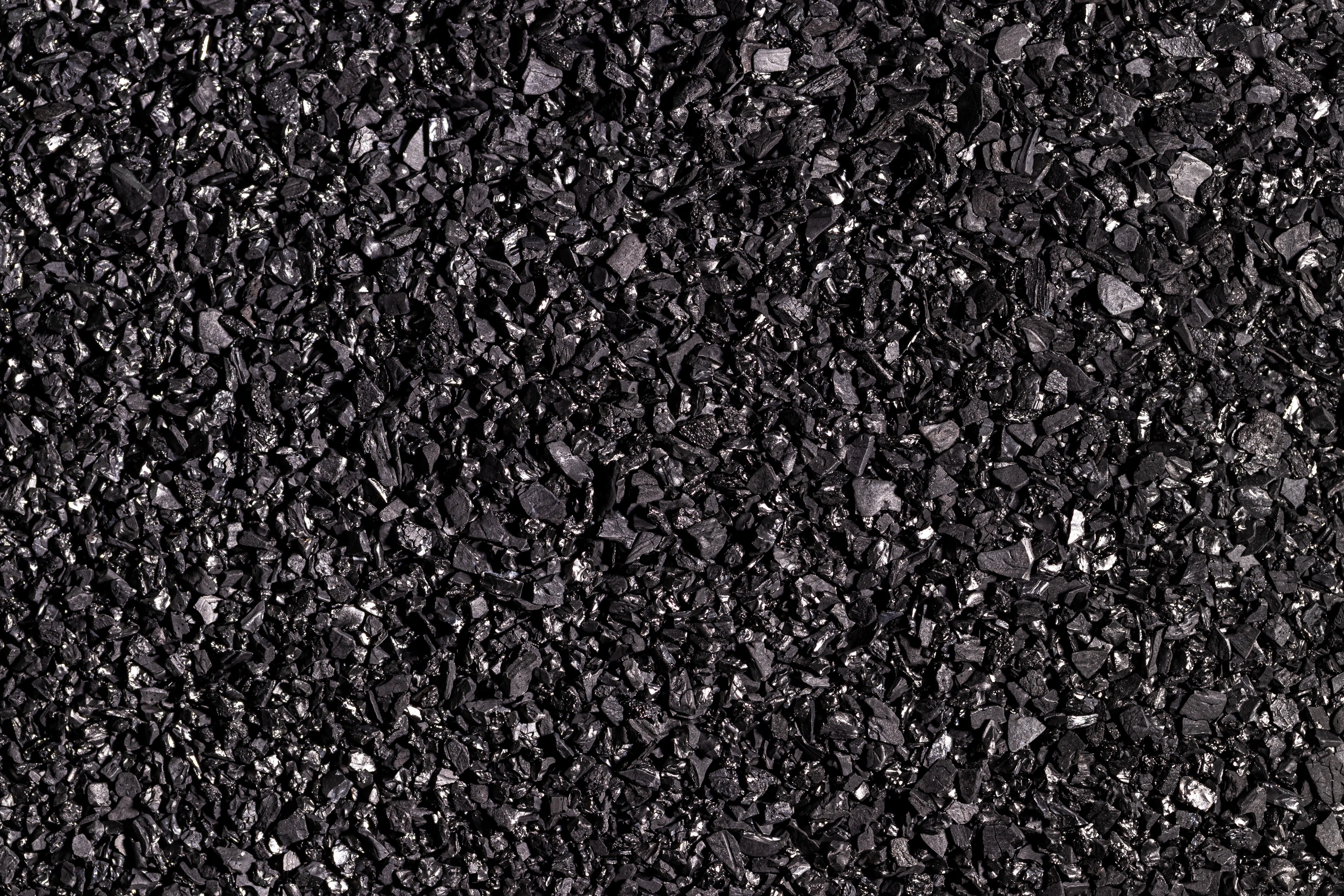
Activated Carbon
Activated carbon is a carbonaceous adsorbent with a high internal porosity, and hence a large internal surface area. The manufacturing and activation process and the basic raw materials used have a determining influence on the adsorptive capacity of activated carbon products in use. Raw material may be charcoal, bituminous coal, wood, coconut shells, olive stones, fruit stones, peat etc.
Properties of Activated Carbon
Commercial activated carbon grades have an internal surface area of 500 up to 1500 m²/g. Related to the type of application, three major product groups exist:
- powdered activated carbon, particle size 1-150 μm
- granular activated carbon, particle size 0.5-4 mm
- extruded activated carbon, particle size 0.8-4 mm
A proper activated carbon has a number of unique characteristics: a large internal surface area, dedicated (surface) chemical properties and good accessibility of internal pores. IUPAC has classified the pores into three types based on the pore size:
- macropores (>50 nm diameter)
- mesopores (2-50 nm diameter)
- micropores (<2 nm diameter)
Micropores generally contribute to the major part of the internal surface area. Macro and mesopores can generally be regarded as the highways into the carbon particle, and are crucial for kinetics. Macropores can be visualized using scanning electron microscopy. The pore size distribution is highly important for the practical application; the best fit depends on the compounds of interest, the matrix (gas, liquid) and treatment conditions. The desired pore structure of an activated carbon product is attained by combining the right raw material and activation conditions.
Applications of Activated Carbon
Air & Gas Treatment
The purity of air on our planet is of great importance to all of us. Whether you are working to meet emission regulations to protect the human health and/or environment, produce ultrapure gas streams or reduce nuisance odors, CGT Carbon provides the suitable activated carbon for your needs.
Water Filter Cartridges
Our activated carbon can be used in water filters. A water filter removes impurities by minimizing contamination of water using a fine physical barrier, a chemical process, or a biological process.
Insulation of high temperature furnaces
Our activated carbon can be used as insulation material in high temperature furnaces due to its insulating properties. Important here is the low moisture level in our material.
Pharmaceutical
Purity is essential in the production of pharmaceutical products. This applies to all stages, from raw materials to intermediates to final product. The unique properties of specific activated carbons provide superior removal of color compounds, odour compounds, proteins and other contaminants that could be present in the raw materials, or that form during production.
Gold Recovery
Highly activated carbon is used in the dissolved gold recovery process, either by introducing it directly into the CIL (carbon-in-leach) tanks or into separate CIP (carbon-in-pulp) tanks after leaching. The activated carbon adsorbs the dissolved gold from the leach slurry thereby concentrating it onto a smaller mass of solids. The carbon is then separated from the slurry by screening and subjected to further treatment to recover the adsorbed gold.
Food & Beverage
Beverage makers rely on activated carbon to remove bad tastes and odors and help ensure the long-term stability of their products. We offer Activated Carbon products that are used to improve the quality of beverages ranging from water to fruit juices to distilled liquor so that beverages look good, smell good and taste good.
Automotive
We are offering activated carbon products used in fuel vapor emission control systems. Activated carbon canisters reduce the hydrocarbon emissions from gasoline-powered automobiles and trucks. Also many cars now include air purification systems that utilize activated carbon in their cabin air filters.
Mercury
Flue Gas One of the major applications in air treatment for activated carbon in the gas phase is flue gas cleaning. Emissions from incinerator systems (primarily Dioxins, Furans and volatile Mercury) if left untreated, pose a serious threat to public health. In the chemical processes industry, the primary applications, which utilize activated carbon, are solvent recovery and catalyst support.
Personal Protective Equipments
Garments or equipment designed to protect the wearer’s body from injury or infection. The hazards addressed by protective equipment include physical, electrical, heat, chemicals, biohazards, and airborne particulate matter.
Petrochemicals Catalyst
It should be strongly emphasized that a very important property of activated carbon, if it is used as a catalyst support, is that it has high resistance to breakage and attrition. In comparison with other carriers, like silica or alumina, our offered Carbons have a greater internal surface area.
Soil Remediation
Soil remediation, also known as soil washing, is a term that refers to various processes designed to remove contaminants such as hydrocarbons (petroleum and fuel residues), heavy metals, pesticides, cyanides, volatiles, creosote, and semi-volatiles from soil.
Water Treatment / Sea water desalination
Our offered Carbons are extensively used in water treatment for removing free chlorine and / or organic compounds. Removal of organics from potable water could be to prevent common organic acids such as humic or fulvic from reacting with chlorine to form trihalomethanes (a class of known carcinogens) or, to treat wastewater to remove any number of organic compounds to make the water suitable for discharge.
For the various applications we offer different qualities of activated carbon. For further and detailed information please contact us.